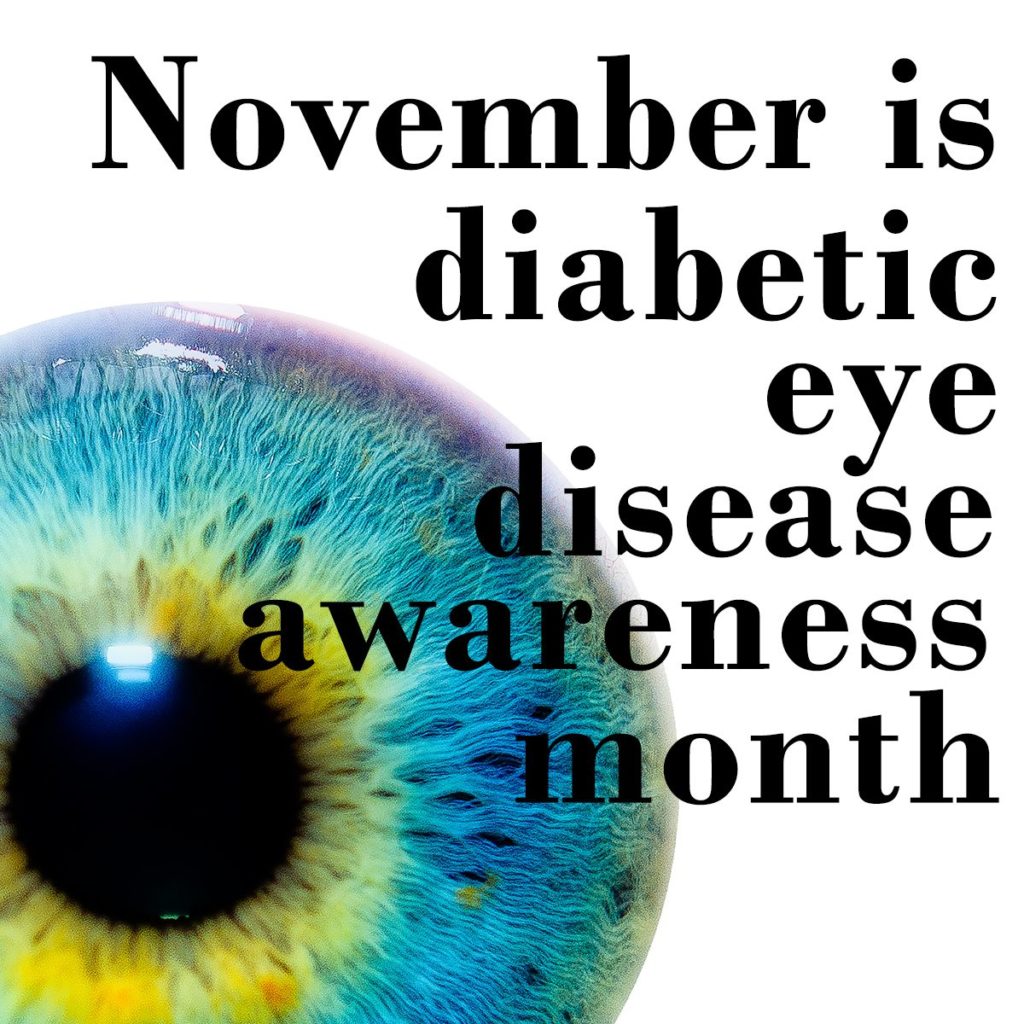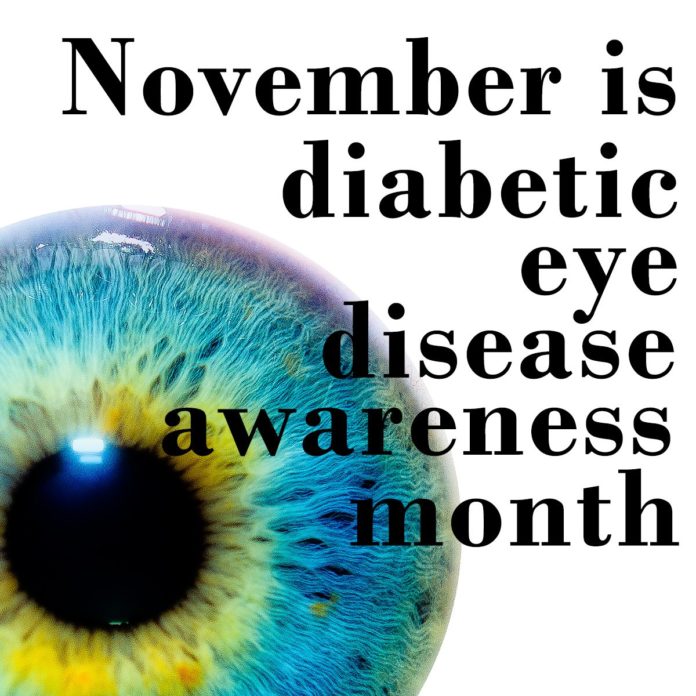
November is Diabetic Eye Disease Awareness Month
By Dr. E. Trevor Elmquist, founder of Elmquist Eye Group
Some eye conditions may not feature any notable symptoms until they reach more advanced stages when floating spots and blurred vision become apparent. Therefore, it is essential for you to care for the health of your eyes before signs of vision loss occur. Regular eye examinations can help you keep minor problems minor.
This is particularly important following a diabetes diagnosis. The Centers for Disease Control and Prevention (CDC) says about 90% of vision loss from diabetes can be prevented, but studies show that 60% of diabetics are not getting the exams recommended. In early stages, diabetic eye issues often have no symptoms.
According to the American Academy of Ophthalmology, people with diabetes are 25 times more likely to lose vision than those who are not diabetic, and risk for many issues increases the longer you have diabetes.
Individuals with diabetes are at risk for developing:
- Diabetic retinopathy – Decreased vision when blood-sugar levels damage blood vessels within the retina
- Diabetic macular edema – An accumulation of fluid in the macula, caused by diabetic retinopathy, that can result in significant vision loss
- Cataracts – Clouding of the lens as a result of excess blood sugar from diabetes
- Glaucoma – Having diabetes increases your risk of getting certain types of glaucoma, a disease of the optic nerve that can lead to vision loss and even blindness
- Prescription changes – Eyeglass or contact prescriptions can change with diabetes

The National Eye Institute reports that diabetic retinopathy affects 40% to 45% of Americans diagnosed with diabetes, yet only half of these individuals are aware of their condition.
For individuals with diabetes or at risk of developing diabetes, having a dilated eye exam each year is vital to extend and protect their eye health. Regular eye exams provide ophthalmologists and optometrists an opportunity to monitor and detect developing eye conditions before vision loss occurs.
Even patients who have modified their diet and are mindful of their blood sugar levels may not realize how diabetes is impacting their eyesight. Trained ophthalmologists and optometrists can take an in-depth look inside your eye to investigate for any diabetic complications and diagnose more subtle forms of vision loss or other serious health conditions related to the eye.
Subtle changes in vision can easily go unnoticed throughout the course of our daily lives. Substantial vision loss can be avoided if these conditions are detected and treated in a timely manner, so individuals with diabetes shouldn’t wait to make an appointment concerning their eyes. Blood sugar control and early detection and diagnosis are most important in preventing loss of vision.
About the Author
Dr. E. Trevor Elmquist is the founder of Elmquist Eye Group. With more than 25 years of service to the Southwest Florida community, Elmquist Eye Group provides patients with a complete range of medical and surgical eye care services, including comprehensive eye exams, diagnosis and treatment of cataracts, dry eye, glaucoma, macular degeneration, diabetic eye disease and many more eye conditions.
For more information, visit



